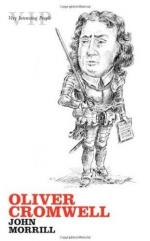|
This section contains 7,070 words (approx. 24 pages at 300 words per page) |

|
SOURCE: "Oliver Cromwell," in The English Revolution of the 17th Century Through Portraits of Its Leading Figures, Progress Publishers, 1990, pp. 115-211.
In the following excerpt, Barg uses Cromwell's speeches to examine his final, troubled years in power and relies on the theories of Carl Marx and Friedrich Engels to explain Cromwell's attitude toward the poor and the bourgeoisie.
It seemed that the victorious sword of Cromwell had definitively consolidated the republic of the Independents. The danger of a royalist intervention had been eliminated. The military art of the general had been convincingly demonstrated twice, at Dunbar and Worcester, and had strengthened the international prestige of the republic. In 1650 the republic was officially recognized by Spain, and two years later this example was followed by France, and then the overseas English colonies of Virginia and Maryland, and also the West Indies.
However, even as the republic was growing stronger...
|
This section contains 7,070 words (approx. 24 pages at 300 words per page) |

|


